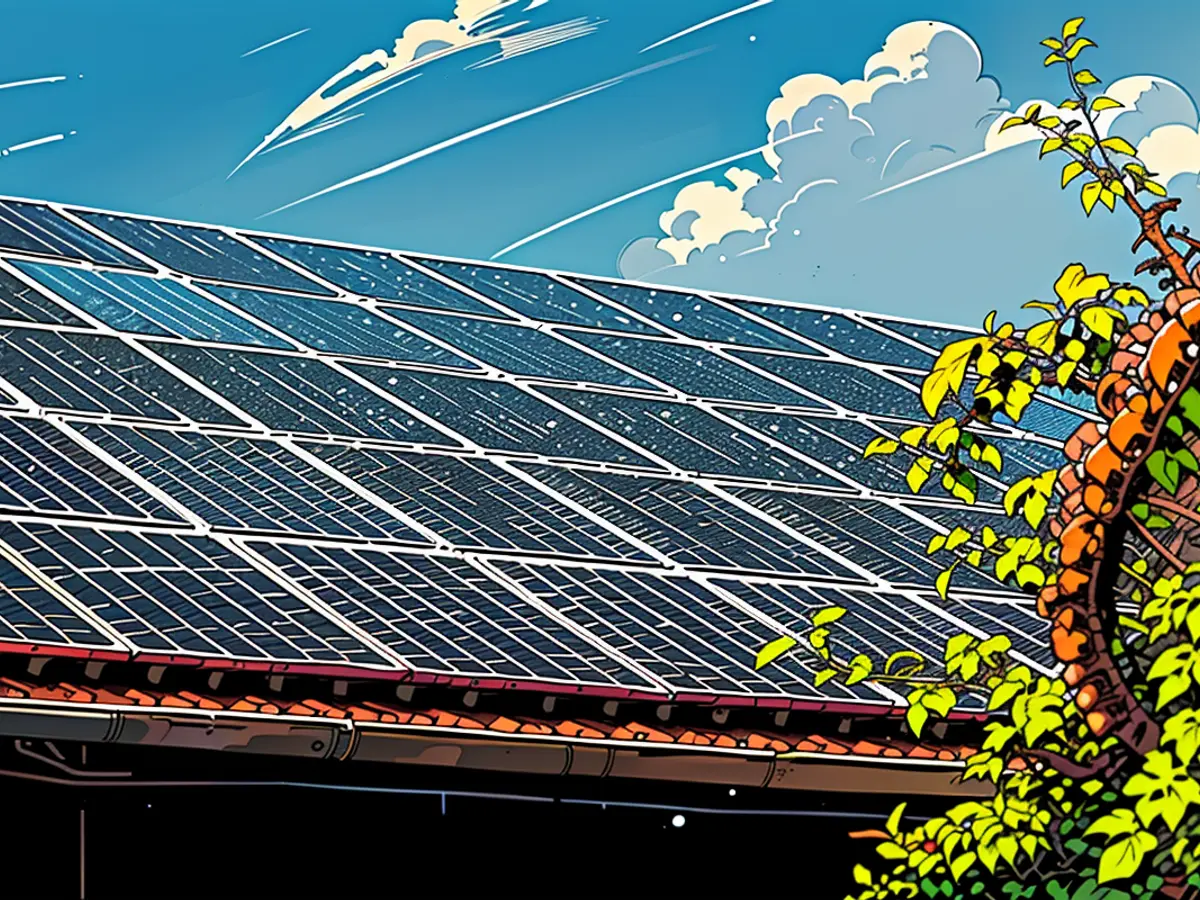DIW: Battery storage from solar panels is a burden on the grid
Many people now use not only solar panels, but also accompanying battery storage systems. While this is certainly positive, it also has its downsides: According to an analysis, these storage systems often feed into the stressed grid simultaneously at full capacity. More intelligent solutions are needed.
The boom in solar energy in Germany is increasingly making it difficult to control power grids, according to a study. An analysis by the German Institute for Economic Research (DIW) in Berlin states that solar power generation is highly concentrated around midday on sunny days. "This can lead to temporary bottlenecks in the power grids, especially at the distribution level."
Existing flexibility in the integration of photovoltaics (PV) is not always used optimally. Many PV systems in buildings have been installed in combination with battery storage systems recently, allowing households or businesses to increase their self-consumption of PV power.
"However, there are hardly any incentives to use these storage systems as network- or market-oriented as possible, as neither the feed-in tariffs nor, in most cases, household electricity tariffs provide corresponding signals: Remunerations and prices are the same for every kilowatt hour, regardless of the current market price," the study states.
For example, it could happen that the PV storage systems are already fully charged in the summer months during the hours of highest PV generation and then feed into the grid at full capacity, stressing local power grids. To control power grids more efficiently, more speed is needed in the installation of "smart" electricity meters, according to the study.
Expansion target already reached
The expansion of solar installations has gained significant momentum. Last year, the addition of new capacity nearly doubled compared to the previous year to almost 14 gigawatts, according to figures from the Federal Network Agency. According to the Ministry of Economics, the total capacity of installed solar installations was more than 90 gigawatts by the end of June. This means that the federal government's target of 88 gigawatts by 2024 has already been reached.
By 2030, the installed capacity is to be 215 gigawatts. To reach this expansion target, the pace must continue to increase, the DIW study states. The main driver of expansion is currently the strong addition of smaller PV systems on buildings, which are attractive due to self-consumption advantages. "But there is also a downside: There is still potential for free-field installations."
A significant reason for the recent strong growth is the decline in prices for solar modules. In recent years, particularly in China, very large production capacities have been built up. However, these are currently far from fully utilized, which puts downward pressure on module prices. China dominates the global PV production chain. The further expansion of PV is therefore also dependent on imports from China.
That's the end of the article.
The solar sector, including the use of solar panels and battery storage systems, is experiencing significant growth in Germany. However, this boom poses challenges to power grid management, as these storage systems frequently feed into the grid simultaneously at full capacity.
Given the expansion target of 215 gigawatts by 2030, it's crucial to optimally utilize the existing flexibility in the integration of photovoltaics (PV) and battery storage systems in the solar sector, which could help alleviate the strain on local power grids.








